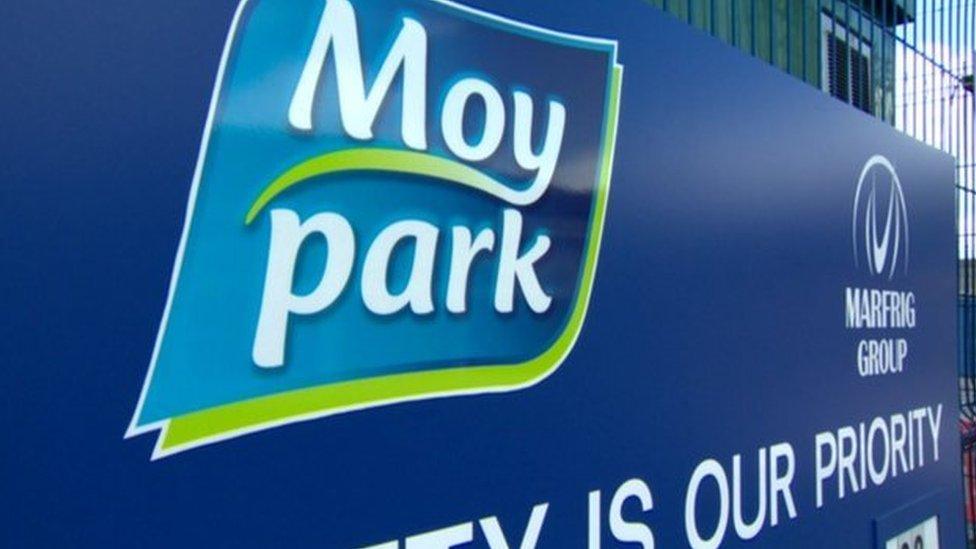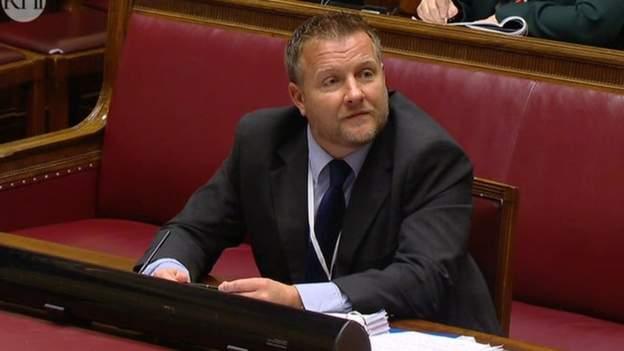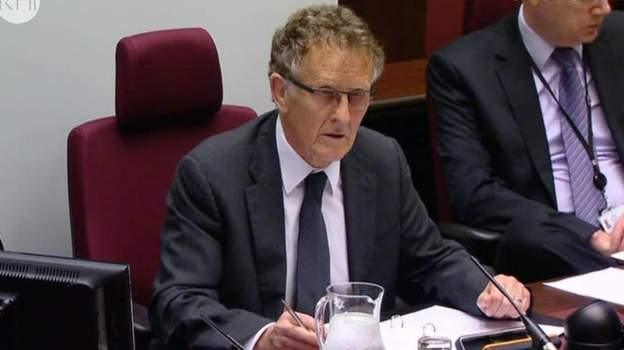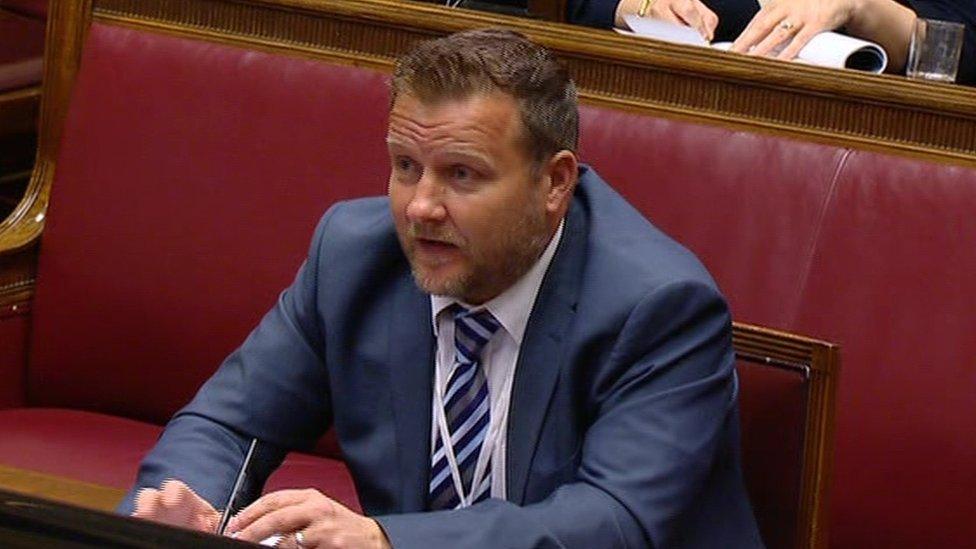RHI Inquiry: Moy Park officials called to give evidence
- Published

Moy Park poultry producers were the main beneficiaries of the over-generous subsidy scheme
Senior officials of poultry giant Moy Park have been called to give evidence to the RHI inquiry, it has been confirmed.
Former chief executive Janet McCollum, who was recently replaced at the company, will attend.
The firm's current head of customer support, David Mark, will also give evidence.
Moy Park poultry producers were the main beneficiaries of the over-generous subsidy scheme.
The scheme, set up in 2012, encouraged businesses to switch from fossil fuels to renewable sources to generate heat.
But in 2016, it emerged that claimants could effectively earn more money the more fuel they burned because the subsidies on offer for renewable fuels were far greater than the cost of the fuels themselves.
An independent inquiry into the RHI scandal was established in January 2017.
The inquiry has already heard evidence of close links between departmental officials running it and representatives of Moy Park.
On Tuesday, the inquiry was told that 12 days before cost controls were publicly announced in September 2015, Moy Park was being informed of how the scheme was to change.
Witness Stuart Wightman, who was by then responsible for the day-to-day running of the scheme, said he directed a colleague to inform Moy Park and other interested parties as a "courtesy".

Stuart Wightman headed DETI's energy efficiency branch from June 2014
He said they had liaised with the industry in July to try and manage opposition to any final policy decision.
He said now that the picture was becoming clearer he felt they should be told.
He now accepts that officials should have waited for the ministerial announcement.
The information was passed on just two days after the decision to proceed had been taken and just as the formal policy decision was being sent to the minister for sign-off.
Others told in advance included biomass installers and the Ulster Farmers' Union (UFU).
The inquiry heard how the information was passed on by some of those interested parties, including biomass company Alternative Heat.
The inquiry heard the company's managing director Connel McMullan had told his staff to circulate it to other "trade contacts".

The inquiry, chaired by Sir Patrick Coghlin, heard the risks of the RHI scheme were downplayed by senior officials.
Mr Wightman said at the time his team was fielding multiple calls on the future of the scheme.
He said providing the information was an attempt to manage that and "stop the phone ringing for a while".
Inquiry chair Sir Patrick Coghlin said the information sharing was the "other side" of the personal contacts Mr Wightman had drawn on when he was trying to build uptake of the scheme.
The number of boilers accredited to the scheme doubled in October and November 2015.
Nine hundred extra boilers got into the scheme, the same as had been accredited in the previous two and a half years.
Earlier, the inquiry heard that the risks of the botched green energy scheme were downplayed by senior officials to an incoming minister.
A submission to the enterprise minister removed a "stark" warning on cost controls.
The projected cost to Northern Ireland taxpayers at one point was £700m.
Paragraph removed
The RHI Inquiry was told that language in a key submission to DUP Enterprise Minister Jonathan Bell of 8 July 2015 was watered down in a series of drafts.
The submission aimed to set out the problems in the scheme and the cost controls needed to address them.
An early version of the submission, which clearly stated the projected expenditure was twice the available budget, was amended to remove the cost controls warning.
A paragraph which suggested that a funding shortfall might have to be paid from other Enterprise spending commitments was also completely removed.
The inquiry was told that payments for 2015-16 were forecast at £23m, but the available budget was only £11.6m.
- Published7 November 2017

- Published6 June 2018
